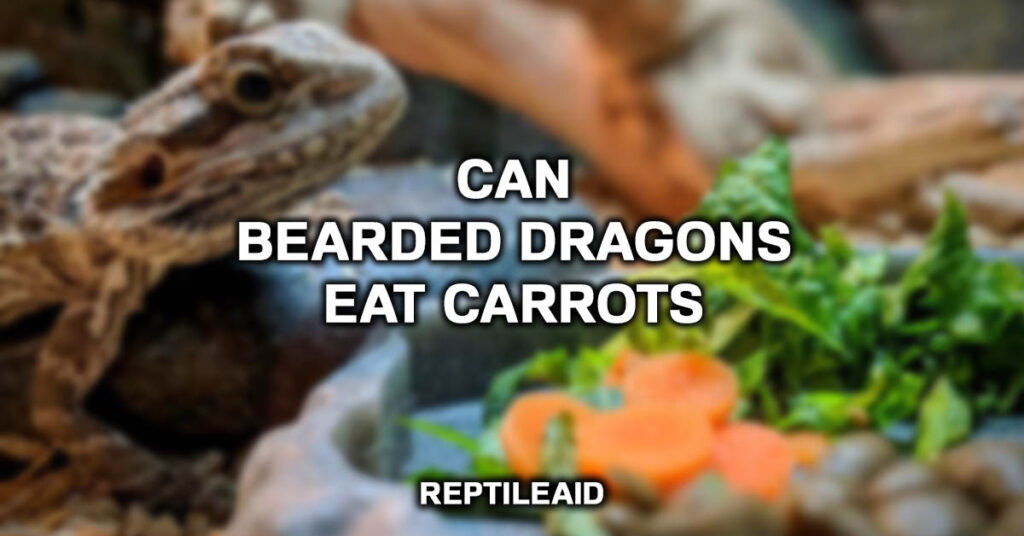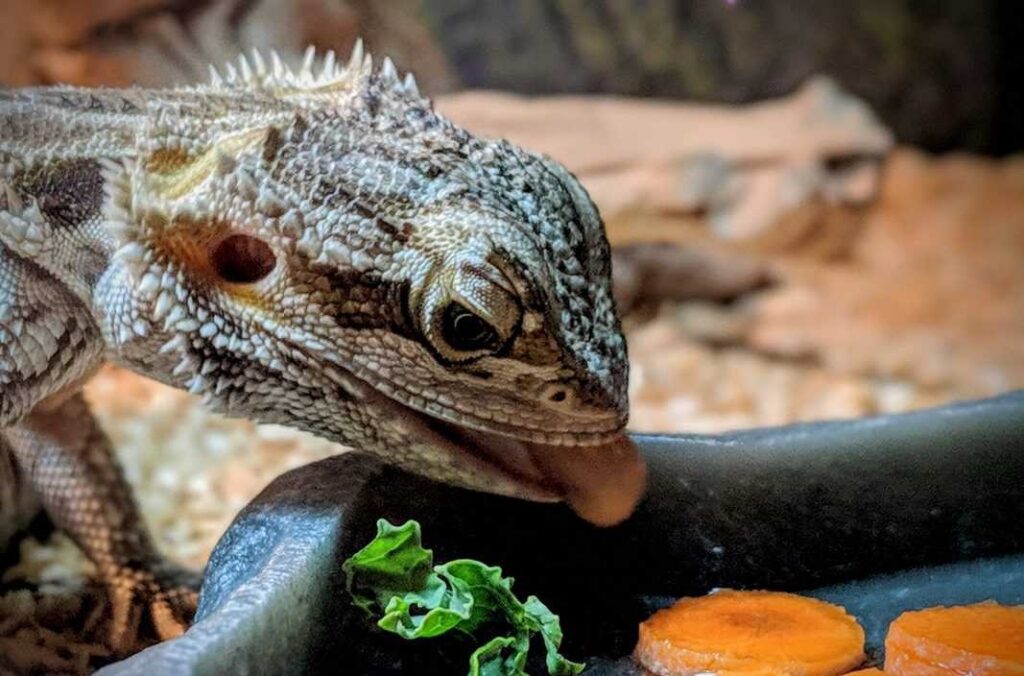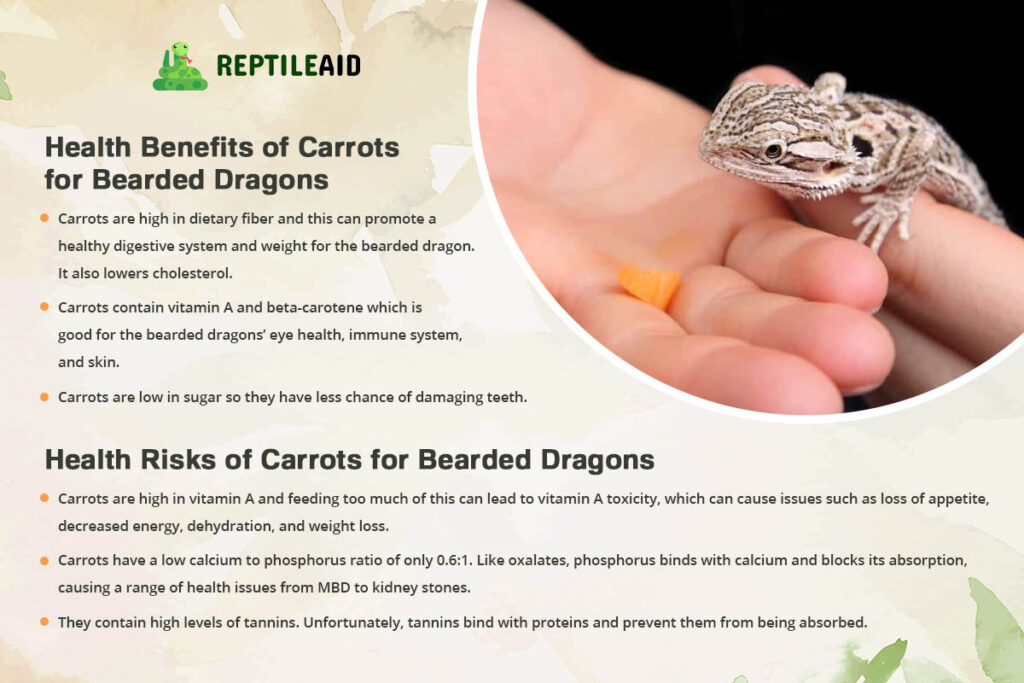As some may already know, other people are inclined to have reptiles as pets. There are different species to look into, but if you are new to reptiles, Bearded Dragons must be one of the options to consider. Before getting them, pet owners must know their habitat, behavior, and diet.
Understanding the lifestyle of our pets will be an excellent foundation to form a stronger relationship.

Pogona, also known as the Bearded Dragon, is part of the family of lizards. It was named Dragon because of its appearance. The side of its throat turns black and dilates when threatened or stressed. It is a gentle, curious, and active reptile despite its appearance.
Bearded Dragons are cold-blooded animals, and they often rely on external heat to raise their body temperature. It ultimately varies depending on the temperature of their environment. They would warm themselves under the sun and sometimes excavate underground to avoid excessive heat.
When it comes to their diet, Bearded Dragons are not picky eaters. One may provide them with live food such as crickets, beetles, and worms. They are also omnivorous, various plants and vegetables may be considered in their meal plan. However, 75% of their diet consists of live animals for baby dragons, while 25% will be of greens and vegetables.

Moreover, once they become adult dragons, the diet will be the other way around. 80% will contain green and vegetables, while 20-25% will be for live animals. When feeding baby dragons, prepare meals three times a day. They need more calcium for growth, so it is best to provide various insects and bugs that are safe for them.
Vegetables and greens can also be served as a snack. It is essential to check on baby dragons during mealtime as they may ingest harmful or poisonous substances. Adult Bearded Dragons should only be fed insects once a day since they require more vegetable intake. Remember to feed adult dragons once a day or every other day, depending on their appetite.
Since Bearded Dragons mainly lived in the wild, the food provided must be a replica of what it would have in its natural habitat. It then should consist of meat or live food, fruits, vegetables, greens, and weeds.
Expert Tip: Despite not being picky eaters, Bearded Dragons must only be served safe and healthy food. Fruits and vegetables can only be given moderately.
At the same time, some live animals may be poisonous and harmful to them. We do not have all of these in our own homes, and sometimes we only feed our pets with what’s available.
For instance, aside from other greens and live animals, carrots are the only vegetable that can be served. Will this be okay? Yes, however, carrots are only allowed to be consumed by Bearded Dragons a few times a week.
Despite it being taken moderately, it still offers nutritional benefits for them, Vitamin A and beta carotene is obtained from carrots which is beneficial for the skin, vision, and a healthy immune system.
Aside from these, it also has fiber that acts as an aid for digestion. Without fiber consumption, the dragons will not be able to digest the bones or exoskeletons of the live food that was ingested. The calcium and phosphorus obtained by carrots have an equal amount which is safer than other plants that contain more phosphorus than calcium.
Bearded Dragons require more calcium for bone development and general health. Too much intake of food rich in phosphorus can cause Metabolic Bone Disease or MBD is a condition that can affect the bone structure of the dragon. All kinds of carrots can be served, the color difference will not reduce the health benefits that Bearded Dragons can obtain.
Moreover, it is better to prepare raw carrots as they may lose some nutrients once it is cooked. Also, it is best to buy organic carrots to prevent dragons from taking in harmful preservatives. When preparing their meals, it is better to remove the carrot tops containing oxalates. Oxalate of oxalic acid is a salt similar to phosphorus that prevents calcium absorption.
Oxalates can cause kidney stones that may lead to bone diseases.
Although some Bearded Dragons may like the texture of carrot tops, it is recommended only to give these once a month or once every two months. Carrots are not considered a staple food for our pets as they are not a good source of calcium and contain too much Vitamin A.
Make sure to feed your pets a moderate serving of carrots as other vitamin supplements that contain Vitamin A. Excessive consumption of Vitamin A may lead to hypervitaminosis A or Vitamin A toxicity. Simply having carrots may be unlikely to cause this disease. However, it is better to consult with your veterinarian to determine how much can be fed to the dragons.
Some symptoms of hypervitaminosis A are swelling, inactivity, dehydration, and weight loss. If symptoms persist, it is advisable to contact the veterinary clinics available. It is important to be aware of the changes in the behavior of our pets. The first step in preparing the carrots is to wash them with water using a soft brush.
It is also preferable to grate the carrot into small servings to prevent them from choking. They can be served as a salad mixed with various vegetables and live meat.

Our pets are valuable to us. It is our responsibility to keep them away from harm and danger. Doing research and asking professionals are only some of the few habits we should practice. We can become the best parents to them through this. Regardless of the pet type, we are accountable for nurturing and comforting them.
It is important to remember that they are used to living in the wild. However, we chose to have them in our homes. Our role then as owners is to maintain their lifestyle and provide them with the time and effort they need. Hopefully, we can all practice responsible pet ownership.
